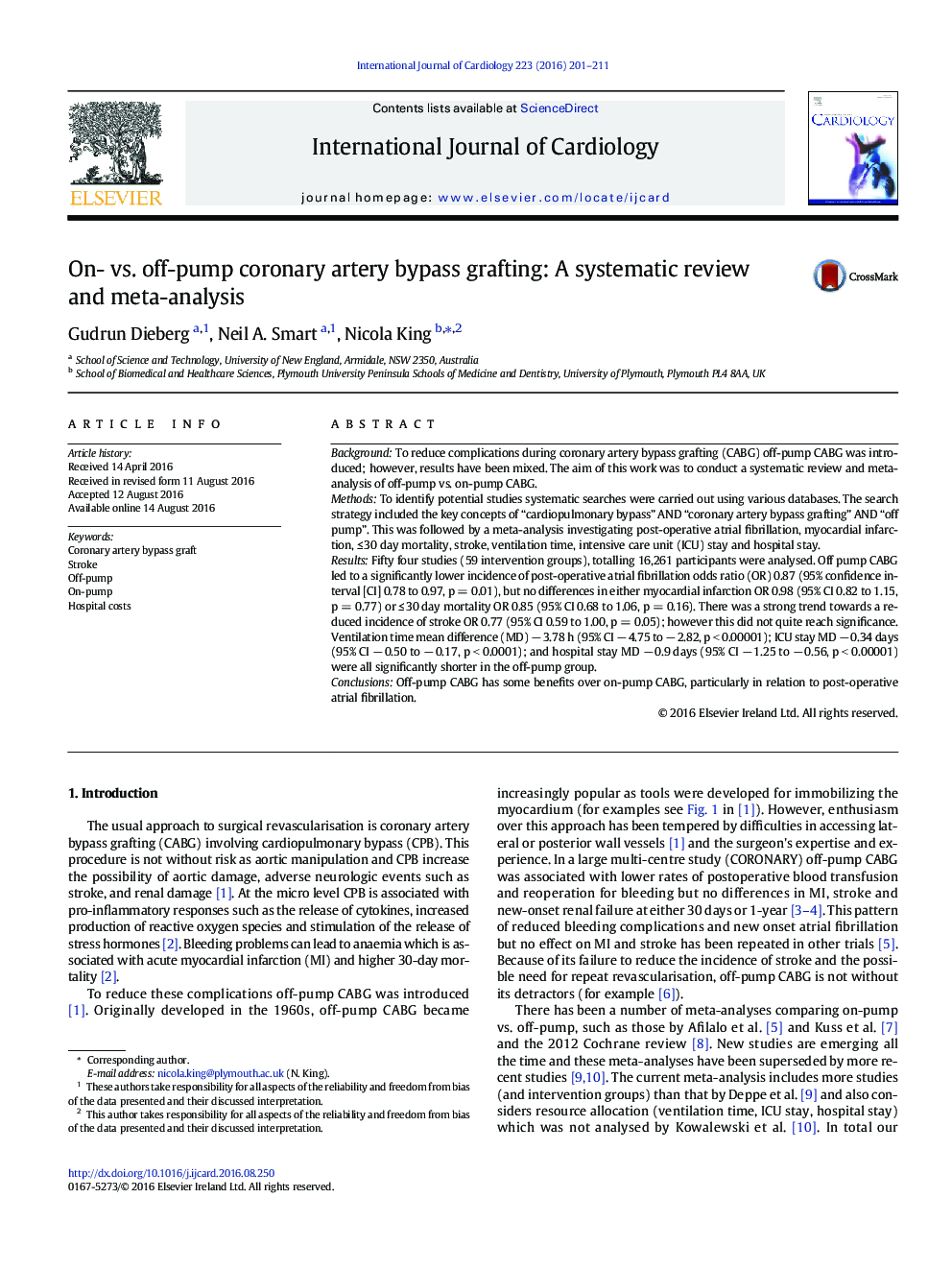| Article ID | Journal | Published Year | Pages | File Type |
|---|---|---|---|---|
| 5963102 | International Journal of Cardiology | 2016 | 11 Pages |
BackgroundTo reduce complications during coronary artery bypass grafting (CABG) off-pump CABG was introduced; however, results have been mixed. The aim of this work was to conduct a systematic review and meta-analysis of off-pump vs. on-pump CABG.MethodsTo identify potential studies systematic searches were carried out using various databases. The search strategy included the key concepts of “cardiopulmonary bypass” AND “coronary artery bypass grafting” AND “off pump”. This was followed by a meta-analysis investigating post-operative atrial fibrillation, myocardial infarction, â¤Â 30 day mortality, stroke, ventilation time, intensive care unit (ICU) stay and hospital stay.ResultsFifty four studies (59 intervention groups), totalling 16,261 participants were analysed. Off pump CABG led to a significantly lower incidence of post-operative atrial fibrillation odds ratio (OR) 0.87 (95% confidence interval [CI] 0.78 to 0.97, p = 0.01), but no differences in either myocardial infarction OR 0.98 (95% CI 0.82 to 1.15, p = 0.77) or â¤Â 30 day mortality OR 0.85 (95% CI 0.68 to 1.06, p = 0.16). There was a strong trend towards a reduced incidence of stroke OR 0.77 (95% CI 0.59 to 1.00, p = 0.05); however this did not quite reach significance. Ventilation time mean difference (MD) â 3.78 h (95% CI â 4.75 to â 2.82, p < 0.00001); ICU stay MD â 0.34 days (95% CI â 0.50 to â 0.17, p < 0.0001); and hospital stay MD â 0.9 days (95% CI â 1.25 to â 0.56, p < 0.00001) were all significantly shorter in the off-pump group.ConclusionsOff-pump CABG has some benefits over on-pump CABG, particularly in relation to post-operative atrial fibrillation.
